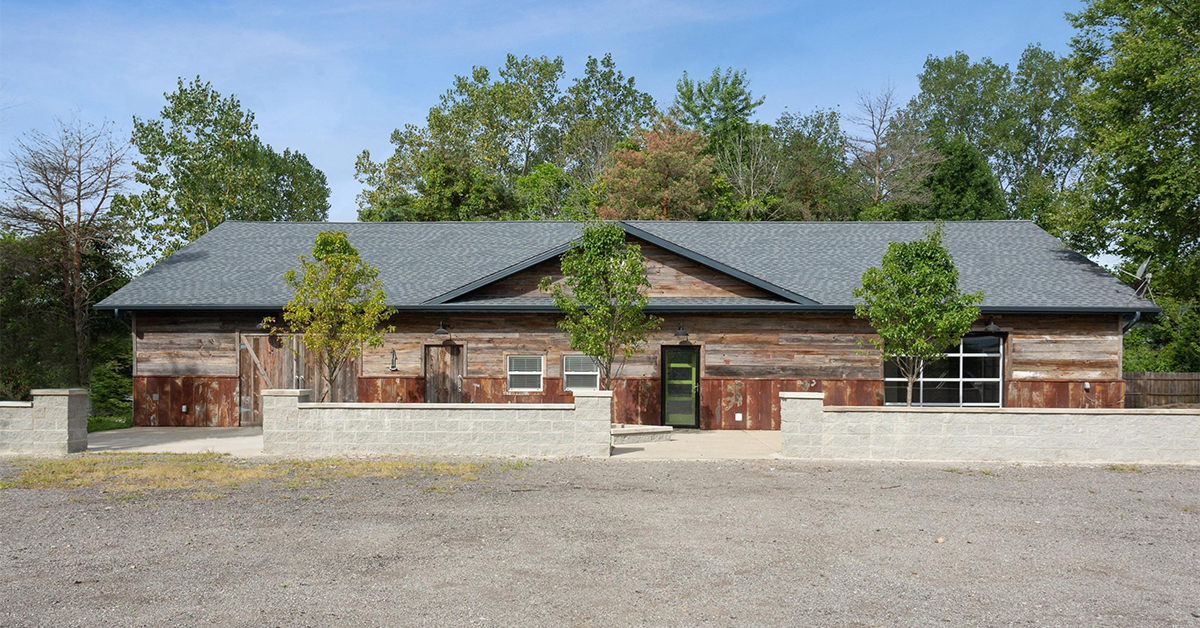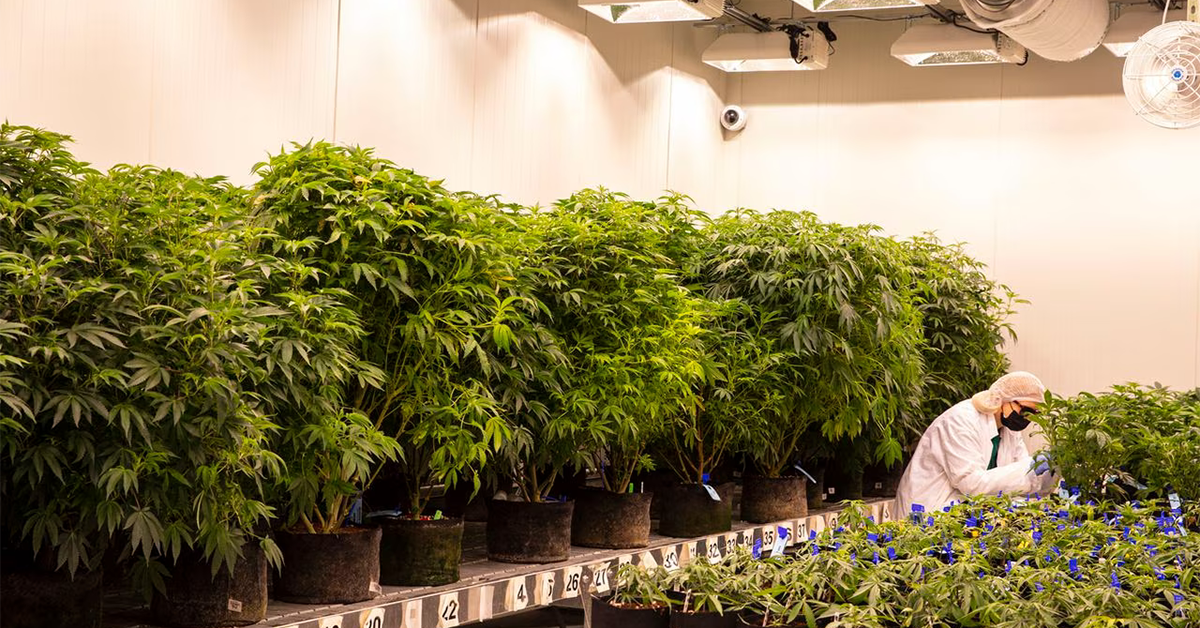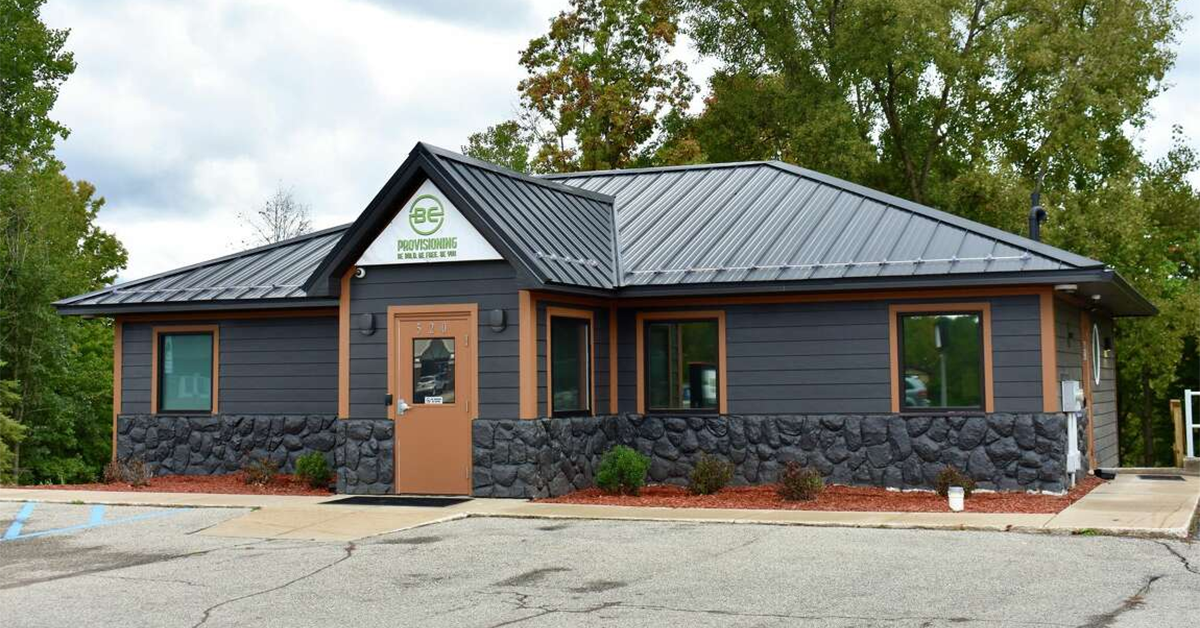Unveiling Key Financial Highlights of Michigan's Cannabis Scene in 2023

Michigan's cannabis industry is constantly evolving, and with a dynamic market, businesses must adapt and stay informed. With this in mind, Rehmann, a professional advisory firm, collaborated with A&K Research to release their 2023 Michigan Cannabis CFO Outlook Report. This report, offering a second-year perspective, sheds light on the financial challenges and opportunities that cannabis businesses encounter.
Chris Rosmarin, CPA and principal at Rehmann, remarked, "Our aim is to present pivotal data in an accessible and understandable format for cannabis business leaders. The 2023 edition not only offers a contemporary view of the financial landscape but also forecasts the trajectory of the industry."
But what does the Michigan marijuana landscape look like now compared to a year ago?
Key Takeaways from the 2023 Michigan Cannabis CFO Outlook Report:
-
Stability in Ownership: 66% of the surveyed companies have no plans or are not in the process of selling their business. However, 17% are currently in the process, while the same percentage are contemplating the idea.
-
Capital Intentions: 42% of the businesses are considering raising capital in the upcoming year.
-
Business Valuation Range: Companies eyeing a sale predominantly (67%) fall within the $11 million to $100 million revenue bracket, and similarly, 67% of those actively selling also fall within the $26 million to $100 million revenue spectrum.
-
Tax Allocations under Section 280E: A diverse range was observed in inventory overhead allocation, with 23% of respondents allocating over 25%.
-
State and Local Tax Exemptions: Over half (53%) of the participating entities are not utilizing any state or local tax exemptions.
-
EBITDA Multiples in M&A: A shift from 2022's 44% expecting an EBITDA multiple of 4-5x in merger and acquisition deals to just 11% in 2023. Now, 50% anticipate a multiple range of 2-4x.
-
Interest Rates on Debt: 2023 witnesses a broader spectrum of interest rates. While 24% are subjected to rates of 16% or higher, another 24% are benefiting from pre-2023 rates of under 7%. Interestingly, 18% operate with zero debt.
-
Revenue Estimations: 47% of the surveyed individuals estimate that an average cannabis store in Michigan generates revenue between $1 million to $3 million annually.
-
Wholesale Operations: 42% believe that a significant portion (51-75%) of wholesalers are not profitable at the current pricing structures.
-
Regulatory Approval Ratings: Faith in the Cannabis Regulatory Agency seems to be growing, with 47% feeling they're doing an efficient job, marking a considerable increase from 25% in the previous year.
Erik Schumacher, CPA and principal at Rehmann, emphasized the report's significance by stating, "The burgeoning Michigan cannabis sector presents both growth and challenges. Our intent with this report is to arm businesses with the necessary information to navigate their journey and make informed decisions."
This report serves as a beacon for current and aspiring cannabis entrepreneurs in Michigan, ensuring they are well-equipped to face the challenges and seize the opportunities the market presents.
Puff Cannabis Relocates to Bigger Headquarters Amidst Exponential Growth

In a significant move underscoring its remarkable growth trajectory, Michigan-based Puff Cannabis has announced the relocation of its corporate headquarters. The cannabis giant is shifting from its existing base in Madison Heights to a revamped 20,000-square-foot facility in Troy. This move is strategically aimed at supporting the company's rapid expansion.
Situated at 1017 Naughton Dr., this new building is poised to be the most expansive cannabis company headquarters in the entire U.S., as stated by the company representatives.
Since its inception in 2019, Puff Cannabis has made notable strides in the marijuana sector. Currently, the company boasts 12 dispensaries spread across Michigan in areas such as Hamtramck, Madison Heights, Utica, River Rouge, Centerline, Bay City, Kalamazoo, Oscoda, Traverse City, New Buffalo, and Sturgis. Demonstrating a commendable financial journey, the company's revenue surged from $7.3 million during its initial year to a staggering forecasted $150 million in 2023. Moreover, they have ambitious plans on the horizon with the intention to inaugurate an additional five to ten outlets within this year.
Expressing his vision for the new headquarters, Justin Elias, the President and founder of Puff Cannabis, articulated, "Our aim is to craft a distinctive and awe-inspiring environment for our workforce, setting a benchmark in the Cannabis realm. The ambience of this new space will resonate with the contemporary and vibrant aura synonymous with the Puff brand, evident in all our retail outlets. Its strategic location in Troy, with proximity to key freeways, empowers us to seamlessly cater to our 12 existing Michigan dispensaries and the ones envisaged for the future."
Aligning with this growth, the company plans to double its corporate team at the new site. The headquarters will also encompass an 8,000-square-foot distribution center, dedicated to the company's apparel collection and assorted promotional merchandise.
The renovation of the single-story building represents a substantial investment for Puff Cannabis, with costs surpassing $1 million. The company anticipates the facility to be operational by January 2024.
Emphasizing its commitment to sustainability, Puff Cannabis is ensuring that the renovation adheres to eco-friendly principles. The company is leveraging green construction materials, integrating energy-efficient lighting solutions, and incorporating solar panels to power the facility. This green initiative is spearheaded by the JV Design Group, based in Bloomfield Hills.
With these changes, Puff Cannabis reinforces its presence in the Michigan marijuana sector while also emphasizing sustainability and growth.
Cannabis Aromas: A Fresh Perspective on What Truly Defines Them

In the dynamic world of cannabis research, understanding the intricacies of marijuana's aromatic attributes has been both an art and a science. For long, aficionados and researchers alike believed that terpenes, the organic compounds in the cannabis plant, were the primary orchestrators of its unique scents. However, a recent groundbreaking study challenges this long-held notion, opening up a new realm of exploration in the world of marijuana aromatics. As we delve deeper into the findings, we'll unravel what truly gives cannabis its distinctive and alluring aroma.
HumbleBee and Green Koi Collaborate for a New Dispensary in Three Oaks

Update from HumbleBee: "This is misleading. We were looking at potentially leasing a building from Green Koi but that's it. Definitely not a "joint venture"."
In a recent Village Council meeting on October 11th, discussions revolved around the potential establishment of a new licensed marijuana retail location within the Village of Three Oaks. The meeting shed light on the proposed venue, impending partnerships, and the necessary regulatory steps.
Ethan Del Stone, co-founder of Green Koi LLC, informed the council of HumbleBee's plan to establish a marijuana dispensary at 6934 West U.S. 12. Del Stone projected the opening of the dispensary by the end of December and highlighted the involvement of HumbleBee's construction team in the project.
Derek Norman, the founder of HumbleBee, who has another dispensary located between Gaylord and Grayling, Michigan, mentioned his company's plan about this new addition. He commented, "After being among the initial 20 to receive licenses in Michigan, we've been considering a second, more centrally located venue downstate. The facility at 6934 West U.S. 12 seems suitable, although it requires certain updates and exterior work."
The collaboration between Green Koi and HumbleBee will be based on a landlord-tenant relationship. "To begin with, Green Koi LLC plans to lease the property to HumbleBee, aiming to position it as a prominent HumbleBee dispensary in Michigan," Del Stone confirmed. He further indicated the potential for a deeper business relationship between the two entities in the future, with the primary objective being the operational readiness of the Three Oaks branch.
Highlighting the regulatory aspects, Village Council trustee, Tyler Ream, noted that any new company intending to operate in the Village of Three Oaks would need to secure a special land use permit from the Planning Commission. Once obtained, they can subsequently apply for a cannabis license from the Village. Responding to this, Del Stone assured, "We are prepared for that process."
Ream expressed concerns about Green Koi's prior license, which was granted two years ago, and the subsequent lack of activity. Del Stone responded, clarifying that the immediate plan is to lease the property to HumbleBee.
It was eventually agreed upon by Ream and Del Stone that HumbleBee would go through the regular application process set by the village.
A look back to October 27th, 2021, recalls the Village Council's decision to grant one of the two available retail marijuana licenses to Green Koi for the property at 6934 West U.S. 12. The second license was awarded to Harbor Country Cannabis, which commenced operations at 6761 U.S. 12. Additionally, Green Oaks Cultivation, LLC, has been granted permission to set up a "Marihuana Micro-Business" at 300 East Ash St., which remains to be opened.
Addressing Green Koi's delay in commencing operations at the Three Oaks site, Del Stone mentioned the challenges that can arise from an oversaturation of dispensaries in a single community. He introduced HumbleBee's strategic approach of not offering its products to any dispensary within a 50-mile radius of the Three Oaks location, aiming to distinguish the venue in the Michigan marijuana market.
Kalamazoo County Witnesses a Flourishing Cannabis Market

As the cannabis market in Michigan continues to blossom, Kalamazoo County encounters a notable shift in its fiscal landscape, propelled significantly by the tax revenues generated from the sales of cannabis and its related products. A deep dive into the 2024 county budget reveals an anticipated $1.75 million in cannabis tax revenue, marking it as potentially the highest amount the county has ever amassed since it commenced tax collections in 2021.
Highlighting Historical Revenue Trajectories:
A historical glance at the Kalamazoo County's cannabis tax proceeds portrays a trajectory that has been largely on the ascent:
- 2021: $1,072,615
- 2022: $1,555,236
- 2023 (Budgeted): $1,031,900
- 2024 (Projected): $1,750,000
Within the fiscal year 2024, which spans from October 1, 2023, to September 30, 2024, this surge in cannabis tax revenue underscores the maturation of Michigan's cannabis market, demonstrating not only its viability but also its substantial contribution to local governance.
Decoding the Distribution of Cannabis Tax Revenue
In adherence to Michigan law, the 10% excise tax derived from the sales of cannabis and its products is meticulously allocated with a structured distribution system. The excise tax delineation comprises 30% being shared amongst local municipalities and the residing counties, while 35% is apportioned to the School Aid Fund dedicated to K-12 education, and another 35% is channelled to the Michigan Transportation Fund.
The methodology of disbursing payments to various governments is partially contingent upon the count of marijuana business licenses situated within their jurisdictions. Kalamazoo Township, for instance, having approved rules for cannabis businesses in January 2020, witnessed the opening of the county's inaugural recreational dispensary in the same year.
Holistic Application of Tax Revenues
In an intricate financial strategy, Kalamazoo County has not pigeonholed the revenue generated from marijuana taxes for any specific department or project. As Taylor Koopman, Public Information Officer, articulated, the incorporation of marijuana tax revenue into the general fund creates a "collective financial resource" which is judiciously deployed across several spheres.
The areas benefitting from these funds span public safety, capital projects, public health, administrative services, and judicial and legal services. The overarching strategy ensures that the marijuana tax revenue is not merely significant but also constitutes a fragment of a larger financial reservoir in the general fund. Consequently, this sustains a wide array of services and operations imperative for effective governance and enhancing the quality of life in Kalamazoo County.
"It ensures a balanced and equitably distributed financial approach, guaranteeing that no single department or project is disproportionately prioritized over another," Koopman elucidated, "and remains in harmony with our dedication to catering to the multifaceted needs of our community."
Navigating Future Budget Allocations
Looking ahead, the Kalamazoo County commissioners have earmarked Tuesday, October 17, as the date to formally adopt the budget. The proposed 2024 budget forecasts a total of $352 million in revenues and an equivalent amount in expenditures. A detailed insight reveals that taxes constitute the predominant category of revenue, encapsulating approximately 27%.
Contrasting the 2023 budget, which demanded $393 million in revenues and expenditures, the 2024 proposed budget appears to be a decrease. However, expenditures in the county's primary funds are projected to be $131.4 million, signifying a 9.25% augmentation in appropriations from the previous year's $120.3 million.
These primary funds envelope several crucial entities including the general fund, law enforcement fund, parks fund, friend of the court fund, health fund, and child care fund. Additionally, the draft budget has allocated $466,000 to eradicate an estimated $89 million in medical debt shouldered by residents.
As Kalamazoo County navigates through this burgeoning cannabis market, the future indeed beckons with promise, bringing forth unparalleled opportunities and challenges in shaping a financially robust and community-centered governance model. Thus, positioning the county as a notable case study in harnessing the economic potentials of a maturing cannabis market within Michigan, and potentially setting a precedent for other counties and states to observe and learn from.
Note: Be sure to read the 2024 proposed budget for a comprehensive understanding of Kalamazoo County's financial planning amidst the burgeoning cannabis industry.
BE Provisioning Establishes Presence in Big Rapids

Big Rapids, a city with a growing interest in the cannabis sector, has recently seen the establishment of BE Provisioning, a new dispensary located at 520 S. Third Ave. This female-led marijuana cultivation business is focused on the variety and quality of its products, making it a notable addition to the city's roster of dispensaries.
The arrival of BE Provisioning in Big Rapids is part of the company's broader strategy to expand its footprint across Michigan. Rooted deeply in the state, the company has expressed its intent to have a positive impact on local communities. Fundamental to BE's operations is the objective of facilitating a well-informed cannabis experience. This is pursued through a blend of educational initiatives and an emphasis on sustainable and positive practices for the environment.
An intriguing facet of the company is its leadership. Dreka Gates, a partner in the venture, has successfully established herself in what many perceive to be a predominantly male industry. Her approach, which integrates inclusivity and innovation, has garnered attention and commendation.
Tyler Weedon, responsible for the brand's marketing and product development, has voiced his enthusiasm regarding the Big Rapids establishment. His connection to the city is personal, having pursued his undergraduate studies at Ferris State University and having represented the institution in athletics. Weedon's remarks highlight a blend of personal and professional interests, reflecting the company's broader commitment to the communities it serves.
BE Provisioning offers a variety of strains, many of which have received accolades. The company's team, trained and dedicated, aims to ensure that customers receive consistent quality, service, and value. Their efforts have been recognized, with the company securing awards such as the 2022 Cultivation of the Year from MI Green State. Additionally, Dreka Gates' contributions were acknowledged when she was named the 2022 Cannabis Women of the Year, and the company itself was highlighted as a 2022 Finalist for Industry Best Staff.
Dreka Gates shared her perspective on the industry, emphasizing the challenges and learnings inherent in cultivating marijuana. Her insights underscore the iterative nature of the business, where continuous learning and adaptation are crucial.
The company has announced a soft opening scheduled for October 14th, running from 9 a.m. to 9 p.m. This event will provide customers with an opportunity to familiarize themselves with BE Provisioning's product range, which includes flowers, pre-rolls, vaporizers, edibles, and concentrates.
Tyler Pritt, representing BE Provisions, reiterated the company's commitment to its staff, recognizing their pivotal role in its operations.


 Helpful Links
Helpful Links